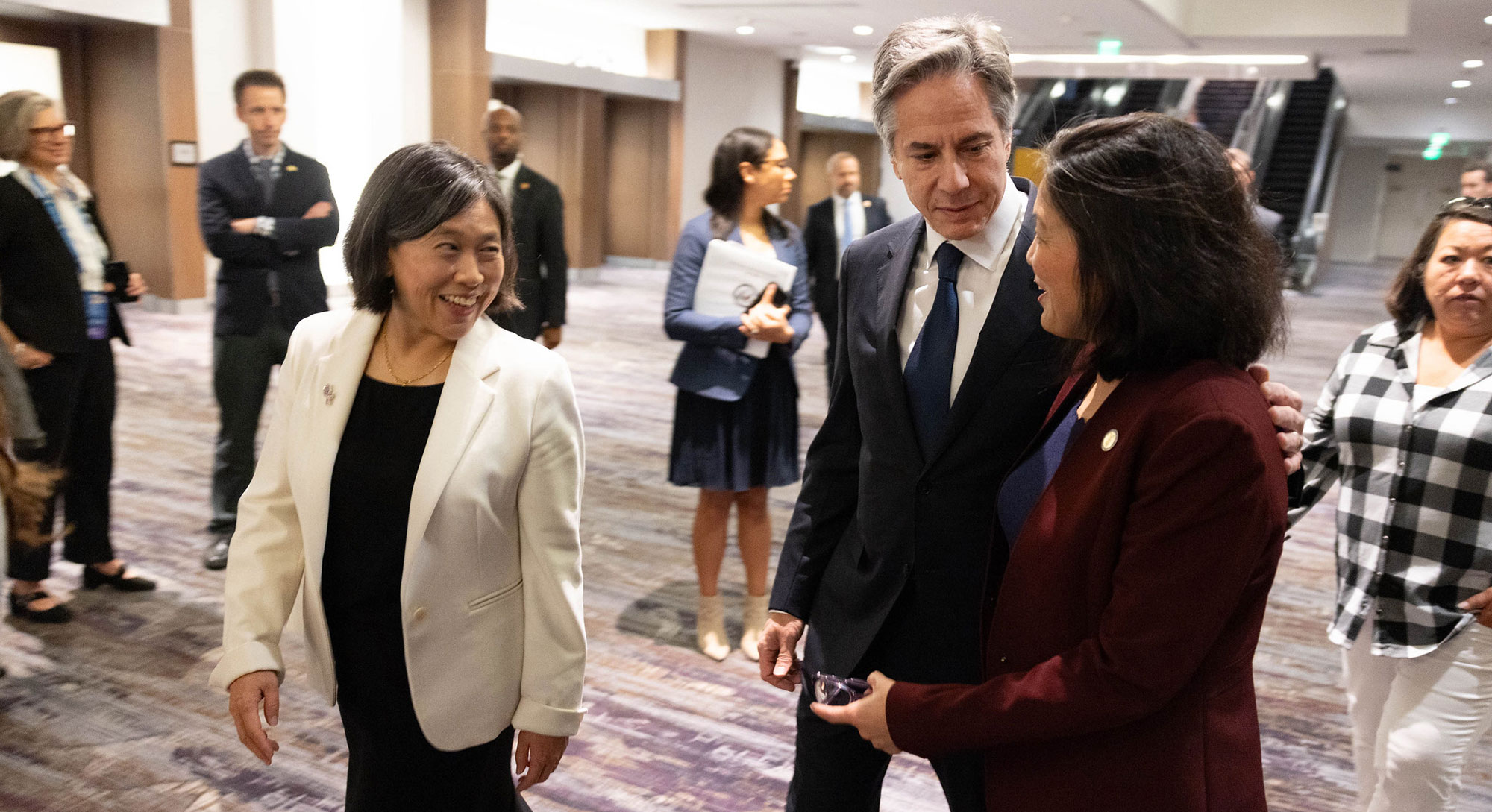
The U.S. government is committed to ensuring high labor standards, bringing workers' voices to the decision-making table, and enforcing rules against unfair labor practices – not just here at home, but around the world. That is why President Biden launched the Presidential Memorandum on Global Labor Rights, the first whole-of-government approach to advance workers’ rights by directing departments and agencies to elevate labor rights in their work abroad.
The Presidential Memorandum on Global Labor Rights will help us:
- Enhance our labor diplomacy and consistently include worker voices in engagements abroad, including in multilateral engagements;
- Defend workers when they come under threat or face violence for exercising their labor rights;
- Expand the U.S. government’s capacity to advance workers’ rights around the world; and
- Pursue effective and meaningful responses to labor rights violations and address gaps in labor rights protections and compliance.
Our Role in Global Labor Rights
The U.S. Department of Labor’s Bureau of International Labor Affairs (ILAB) remains at the forefront of U.S. government efforts to advance labor rights and empower workers worldwide. ILAB is the largest U.S. government agency devoted to strengthening global labor standards, enforcing labor commitments among trading partners, promoting racial and gender equity, and combating international child labor, forced labor, and human trafficking.
In December 2022, ILAB launched the Multilateral Partnership for Organizing, Worker Empowerment, and Rights (M-POWER), a historic global initiative focused on ensuring working families thrive in the global economy and elevating the role of trade unions and organized workers as essential to advancing democracy. M-POWER includes an approximately $130 million commitment by the U.S. Department of Labor, U.S. Agency for International Development, and U.S. Department of State for innovative technical assistance to empower workers and strengthen worker voice.
We are also increasing the number of the department’s labor attachés posted in U.S. embassies– growing from 1 to 10 in a few short years, working closely with their State Department counterparts worldwide to embed labor rights in our foreign policy.
Resources
- Presidential Memorandum on Advancing Worker Empowerment, Rights, and High Labor Standards Globally
- FACT SHEET: President Biden Takes Historic Step to Advance Worker Empowerment, Rights, and High Labor Standards Globally
- M-POWER
- Release of the Presidential Memorandum on Advancing Worker Empowerment, Rights, and High Labor Standards Globally - United States Department of State
- Statements from Agency Heads:
